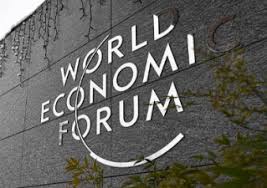Rising Geo-Economic Fragmentation Poses Threat to Global GDP
Current Affairs International IssuesPosted by newadmin on 2025-01-27 17:23:50 |
Share: Facebook | Twitter | Whatsapp | Linkedin Visits: 48

The World Economic Forum (WEF) recently released a report titled Navigating Global Financial System Fragmentation, which warned that geo-economic fragmentation could severely impact global GDP. The report predicts that this fragmentation might surpass the economic consequences of both the 2008 financial crisis and the COVID-19 pandemic. Emerging markets, particularly countries like India, are expected to bear significant economic burdens as geopolitical tensions rise.
About Geo-Economic Fragmentation
Geo-economic fragmentation refers to the division of the global economy into separate and often conflicting blocs. This phenomenon is primarily driven by countries using financial measures, such as sanctions, trade barriers, and industrial policies, to pursue geopolitical objectives. These actions disrupt established trade relations and reduce cross-border capital flows, further exacerbating economic divides.
Economic Implications of Fragmentation
The report suggests that geo-economic fragmentation could cost the global economy between USD 0.6 trillion and USD 5.7 trillion, potentially reducing global GDP by up to 5%. This disruption could result in lower trade efficiency, reduced investment flows, and even a significant inflation surge of more than 5% in extreme scenarios.
The Role of Sanctions and Statecraft
The use of sanctions has surged dramatically by 370% since 2017, as countries increasingly leverage financial systems to fulfill national interests. This shift has led to a rise in subsidies and discussions around alternative financial systems, complicating international trade and investment.
Impact on Emerging Markets
Emerging economies, such as India, Brazil, and Turkey, are particularly vulnerable to geo-economic fragmentation. These countries depend heavily on a connected global financial system, and in severe fragmentation scenarios, they could experience GDP declines exceeding 10%. These nations are susceptible to economic shocks due to their reliance on global trade and financial integration.
Inflationary Pressures
Geo-economic fragmentation not only affects GDP but also contributes to inflation. As trade costs rise and competition decreases, prices for consumers are expected to increase. Emerging markets, which have less economic resilience, are likely to face the most severe inflationary effects, exacerbating living costs and hindering economic progress.
Policy Recommendations for Mitigation
To combat these risks, the WEF report urges policymakers to adopt strategies that encourage international cooperation and sustainable development. A principled approach to economic statecraft can help alleviate the negative effects of fragmentation. By strengthening resilience in the global economy, leaders can better manage the challenges posed by geopolitical tensions.
Future Scenarios and Economic Decoupling
In the event of a complete economic decoupling between Eastern and Western blocs, countries not aligned with either bloc may be forced to trade exclusively with their largest economic partner. This could result in further economic isolation and a decline in GDP growth for these nations, making global economic cooperation more crucial than ever.
Search
Categories
Recent News
- Teacher's Assault Leaves Student with Lasting Damage
- BlackRock's Fink Advocates Long-Term India Investment Amid Short-Term Distractions
- NBA All-Star Game: Kawhi Leonard's Selection Adds Star Power
- Unlocking Opportunities: British Council's STEM Scholarships for Women
- Hyderabad's Cybercrime Help Desk: Revolutionizing Victim Support
- Kerala Lottery's DhanaLekshmi DL-38 Unveils Its Lucky Winner
- Supreme Court Demands Action on Alleged Fraud by Anil Ambani's Firms
- China's Space Ambitions: A Giant Leap or a Pipe Dream?
Popular News
- Navigating IPO Market Dynamics Amid Volatility and Regulatory Changes
- Massive Worldwide Microsoft Outage Disrupts Multiple Sectors
- Panjapur Bus Stand to Reshape TNSTC Routes
- తెలుగుదేశం పార్టీ - పేదరికాన్ని నిర్మూలించడంలో వాగ్దానం
- Universities Embrace Remote Learning Technologies Amidst Ongoing Pandemic